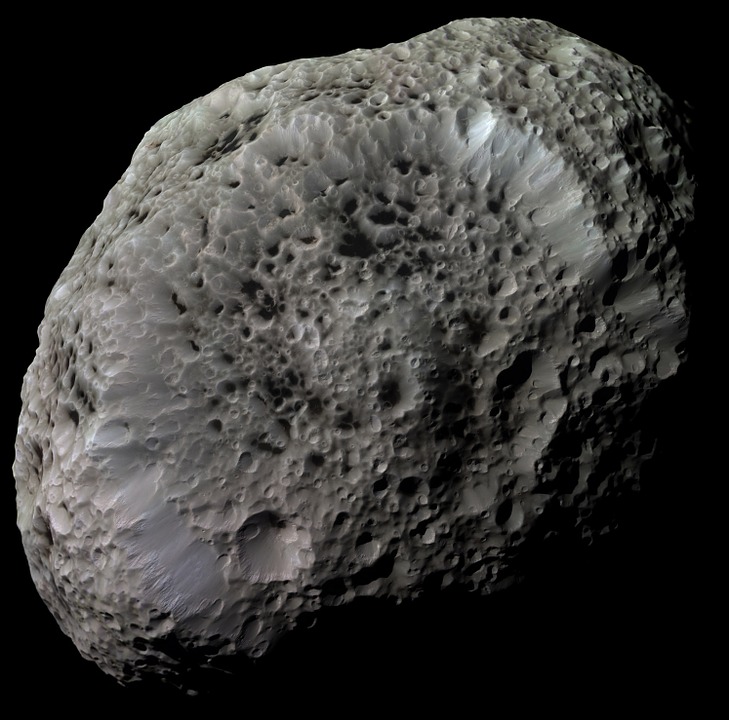One of the asteroids that space agencies are keeping tabs on is the asteroid Apophis. In contrast to previous studies predicting when Apophis would arrive by Earth, astronomers have raised a concern that the asteroid is already hurtling through space at an accelerated rate.
Many predictions have been made toward the time asteroid Apophis would arrive by our planet. Last year, NASA predicted that the asteroid would pass by Earth by 2036 but there have been indications that suggest it would arrive a lot sooner by 2029. Recently, NASA has confirmed the date of the asteroid’s flyby with our planet that will take place on April 13, 2029. The closest the asteroid will get to Earth would be from a distance of 37,725 kilometers away, which is 10 percent of the average distance between the Earth and the Moon.
“This will be the closest approach by something this large currently known,” said Lance Benner of NASA in a statement. “Apophis will be visible to the unaided eye for several hours, and Earth tides will probably change its spin state,” Benner added, noting when the asteroid will finally make its passing by.
Astronomers from the University of Hawaii however, have found a slight change in the asteroid’s trajectory. The trackers have detected a Yarkovsky acceleration in Apophis which refers to the slight push by outside forces that would change the space rock’s position in an orbit. This would prove especially crucial for Apophis as it could have an impact on its probability to collide with Earth by 2068.
Previously, residents from the western coast of the United States were able to witness a fireball passing over the night skies a few weeks ago on October 23. Citizens of California, Oregon, and Washington were able to spot the asteroid flying over the skies and many reports have been made to the International Meteor Organization.
Many witnesses have described the sighting as “incredible,” while one user shared that they initially thought it was a firework until they were convinced it was a meteor. Other citizens who saw the asteroid described it as bigger and brighter than any other shooting star they had seen.



 Blue Origin’s New Glenn Achieves Breakthrough Success With First NASA Mission
Blue Origin’s New Glenn Achieves Breakthrough Success With First NASA Mission  NASA Resumes Cygnus XL Cargo Docking with Space Station After Software Fix
NASA Resumes Cygnus XL Cargo Docking with Space Station After Software Fix  Tabletop particle accelerator could transform medicine and materials science
Tabletop particle accelerator could transform medicine and materials science  CDC Vaccine Review Sparks Controversy Over Thimerosal Study Citation
CDC Vaccine Review Sparks Controversy Over Thimerosal Study Citation  Eli Lilly’s Inluriyo Gains FDA Approval for Advanced Breast Cancer Treatment
Eli Lilly’s Inluriyo Gains FDA Approval for Advanced Breast Cancer Treatment  Astronomers have discovered another puzzling interstellar object − this third one is big, bright and fast
Astronomers have discovered another puzzling interstellar object − this third one is big, bright and fast  Neuren Pharmaceuticals Surges on U.S. Patent Win for Rare Disorder Drug
Neuren Pharmaceuticals Surges on U.S. Patent Win for Rare Disorder Drug  SpaceX Starship Explodes in Texas During Test, Citing Nitrogen Tank Failure
SpaceX Starship Explodes in Texas During Test, Citing Nitrogen Tank Failure  Trump Signs Executive Order to Boost AI Research in Childhood Cancer
Trump Signs Executive Order to Boost AI Research in Childhood Cancer  FDA Pilot Program Eases Rules for Nicotine Pouch Makers
FDA Pilot Program Eases Rules for Nicotine Pouch Makers  Cogent Biosciences Soars 120% on Breakthrough Phase 3 Results for Bezuclastinib in GIST Treatment
Cogent Biosciences Soars 120% on Breakthrough Phase 3 Results for Bezuclastinib in GIST Treatment  SpaceX Prioritizes Moon Mission Before Mars as Starship Development Accelerates
SpaceX Prioritizes Moon Mission Before Mars as Starship Development Accelerates 




























